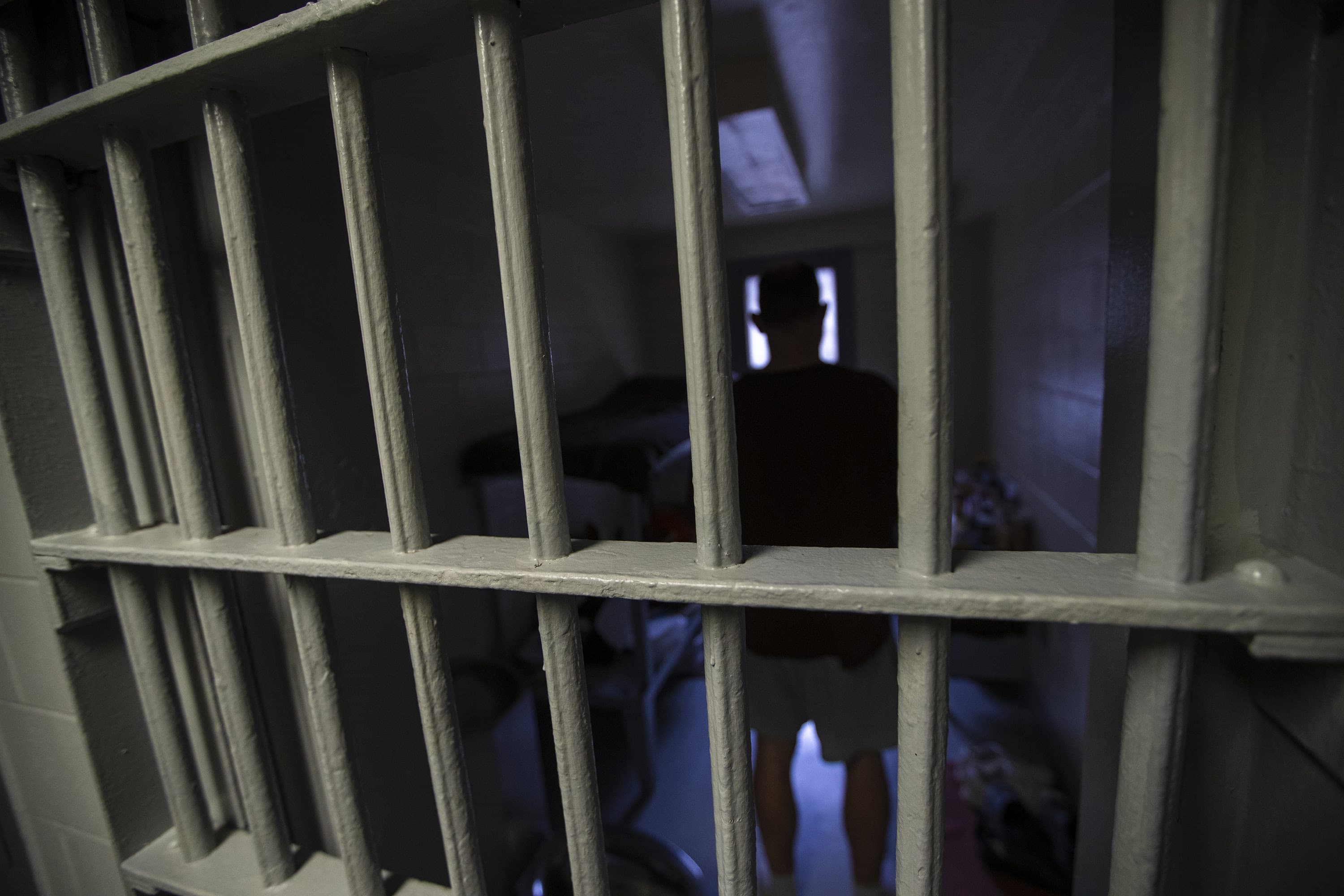Advertisement
State Still Negotiating With DOJ Over Handling Of 'Mental Health Watches' In Prisons

Negotiations continue between Massachusetts correction officials and the Justice Department over last year's scathing federal report on mental health treatment in the state's prisons.
Andrew Peck, the state's undersecretary for criminal justice, said state corrections officials are working well with the DOJ, and a settlement over the report is in progress.
Last November, Massachusetts U.S. Attorney Andrew Lelling released the report after a two-year investigation that found the state Department of Correction violated prisoners' constitutional rights by not providing adequate mental health care.
Lelling's report focused on detainees placed on so-called "mental health watch," a status that typically results in a prisoner being isolated in a cell with few belongings or clothes. The prisoner is then closely monitored by medical staff and correction officers
The report said many of those prisoners were subjected to harsh conditions — and were mostly held in restrictive housing. It also stated those prisoners received little to no mental health treatment.
Peck made his comments about the work toward a settlement during Thursday's meeting of the state's Restrictive Housing Oversight Committee. The committee was established under the Criminal Justice Reform Act of 2018 to study and issue a report on the use of restrictive housing in all state correctional facilities. Some committee members asked the panel to take up the federal report, saying it falls within the committee's mandate.
"The Department of Justice is crystal clear in not only stating that these watches are, in fact, restrictive housing, but also, it just graphically depicts all the deprivations that make these watches, in many regards, even more harsh than restrictive housing," said committee member Bonnie Tenneriello, an attorney with Prisoners' Legal Services of Massachusetts.
"I think we need to look at this as a system and not just look at restrictive housing in isolation," she added.
Tenneriello and other committee members made several recommendations during the meeting, including:
- holding correction officers accountable for the alleged mistreatment of prisoners outlined in Lelling's report;
- mandating that those under watch be allowed to shower and get out of their cells each day;
- requiring correctional facilities to provide treatment to those placed under a mental health watch;
- scheduling a public hearing about the "mental health watch" system and restrictive housing in prisons and jails.
"The lack of any significant treatment to these prisoners one of the most shocking aspects of the DOJ report," Tenneriello said. "There must be confidential psychiatric treatment — and just giving medication is not necessarily treatment."
Among the findings in Lelling's report were that prisoners were confined to mental health watches for too long. The report said that although prisoners were expected to be on mental health watch for up to four days, investigators found that more than 100 detainees were on mental health watch for more than 14 days. The report stated that the lengthy isolation often exacerbated a mental health crisis, stating that "prisoners in crisis placed on MDOC’s [Massachusetts Department of Correction's] mental health watch often face a harmful experience — not a therapeutic and protective one."
"Even though we all have had a lot of experience and exposure to the prison system, we were surprised and upset to learn how long so many prisoners spend on mental health watch," said committee member Robert Fleischner, with the Massachusetts Association for Mental Health. "That's not something I've seen or been aware of."
Fleischner also said there should be a review of correction officers' role in mental health units and how to make the environment more therapeutic.
"It seems clear that security concerns and mental health treatment for prisoners who are in crisis are sometimes, maybe even often, in conflict," Fleischner said. "Correction officers are maybe being asked to perform duties for which they are either not trained or not prepared for."
"It seems clear that security concerns and mental health treatment for prisoners who are in crisis are sometimes, maybe even often, in conflict."
Robert Fleischner, of the Massachusetts Association for Mental Health
Members of the public also addressed the committee. Some expressed frustration that the committee is not moving more quickly, and said conditions in correctional facilities have worsened amid the pandemic and the further restrictions it has brought. Many prisoners have endured conditions similar to lockdowns since the pandemic began in March, with visitations and outside programming suspended for much of the time.
Two women asked the committee why prisoners on mental health watches often are forced to wear little or no clothing. A prisoner on watch is usually given a so-called "suicide smock" — a thick flannel-like vest that cannot be torn.
"The idea of being stripped naked and thrown in a cell and tortured by COs [correction officers], why is that allowed?" said Laura Wagner, with Unitarian Universalist Mass Action. "We sit here and go on and on while people are dying and being tortured with taxpayers' money — in our system. I don't understand why we keep having these meetings."
The DOC said it has taken steps to improve mental health treatment and will address the recommendations made in Lelling's report. Lelling has said that the DOC cooperated with investigators and was working with his office to make improvements.
If a settlement is not reached, the DOJ can file suit against the state.
Correction: An earlier version of this story incorrectly identified the title Robert Fleischner holds with the Massachusetts Association for Mental Health. The post has been updated. We regret the error.
